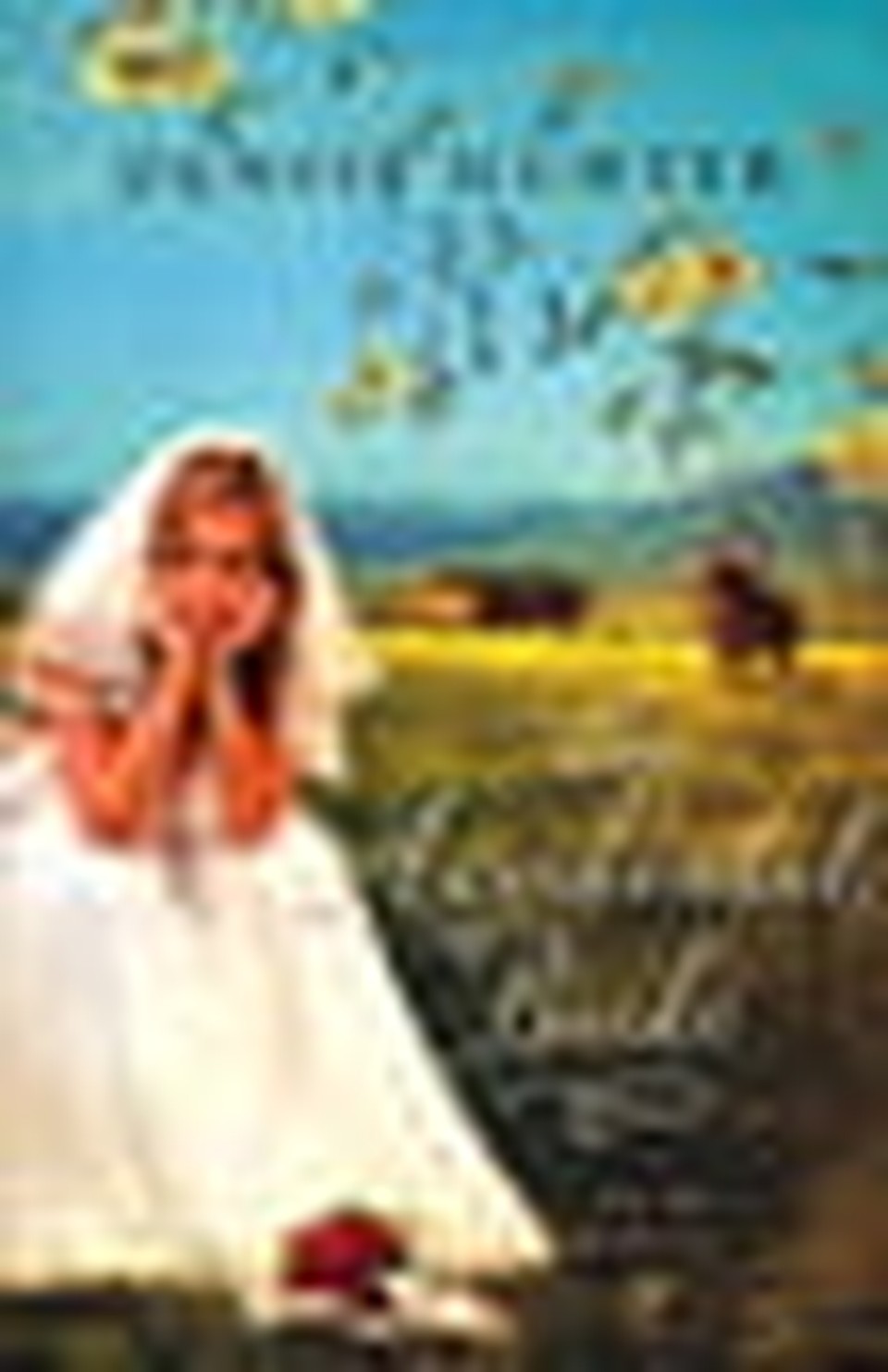Solving an Accidental Bride’s Problem

Author: Denise Hunter
Title: The Accidental Bride
Publisher: Thomas Nelson Publishers
How do you solve a problem like The Accidental Bride?
On one hand, Denise Hunter’s latest novel in her Big Sky Romance series has everything necessary to fit the genre. Its classic left-at-the-altar, jilted lover, teenage crush mishmash of a plot gets energized by an unusual twist, a mock wedding ceremony at a rural village’s heritage festival. Then, after a drawn-out narrative between our prideful heroine, who’s staring down desertion for the third time, and the one true love she’s ever had, everything works out and they all live happily ever after.
Hunter even throws some sex into the mix, although since this romance is geared for Christians, she’s not explicit, and the scenario is morally sound. Actually, Hunter crafts the scene so delicately, you could probably read it aloud to your grandmother without getting embarrassed, yet you’d both know exactly what was taking place.
Not every author can get away with something like that.
On the other hand, however, if you took out The Accidental Bride’s token references to God and church, and ignored its nuanced love scene, you’d hardly recognize it as a book geared toward a Christian audience.
And that’s the problem.
Neither of Hunter’s two love interests, Shay and Travis, apparently has regular devotions. Neither prays frequently to God for direction, and both of them confuse lust an appropriate substitute for love. Indeed, Hunter spends an inordinate amount of time titillating us with their respective anatomical qualities.
They’re both gorgeous. We get it. But Proverbs 31 reminds us that physical beauty is fleeting. Shouldn’t Hunter’s descriptions of Shay and Travis be, also?
Rather than dwelling on the other’s admirable personality traits or spiritual maturity, they each let ordinary sensual arousal dominate their decisions. Considering both Shay and Travis’ unsuccessful track record with the covenant of marriage, you’d hope that instead of simply trying to wing it, they’d respect the need for some sort of relationship discipleship.
Yet their faith seems ancillary to life, not central to it.
Disturbingly, the only spiritual people in The Accidental Bride consist of an old lady everybody thinks is senile, and a bumbling preacher a few bricks shy of a full load himself.
It’s the preacher whose profound carelessness sets up most of The Accidental Bride’s plot. It’s also the preacher who apparently gossips to the town newspaper about Shay and Travis’ defunct relationship. Nobody should expect their pastor to be perfect, but Hunter deploys a caricature who denigrates the calling just so she can work a little artistic license regarding the marriage license.
And the kindly yet enfeebled grandmotherly figure? Hunter cloaks her meddling machinations between Shay and Travis in a spurious sovereignty-of-God purposefulness that comes off more as sinful intrusion than faith. While yes, it’s true God can use anybody and anything to accomplish his will, it’s disappointing to see spiritual maturity so marginalized by its absence.
Why don’t Shay and Travis take their personal relationships with God as seriously as they do their own romantic relationship? Sure, God hears prayers tossed to him on the fly, but do things always work so perfectly on such minimal communication with the Almighty?
According to its marketing pitch, The Accidental Bride is the story about how a jilted country girl learns to ignore what other people think of her. Instead, what’s accidental about this book is a half-hearted lesson for overcoming pride, and references to religion that seem more a justification for being published by a Christian nameplate than a basis for virtue.
How do you solve a problem like The Accidental Bride? By being more purposeful in our choice of reading material.
Originally published February 29, 2012.





